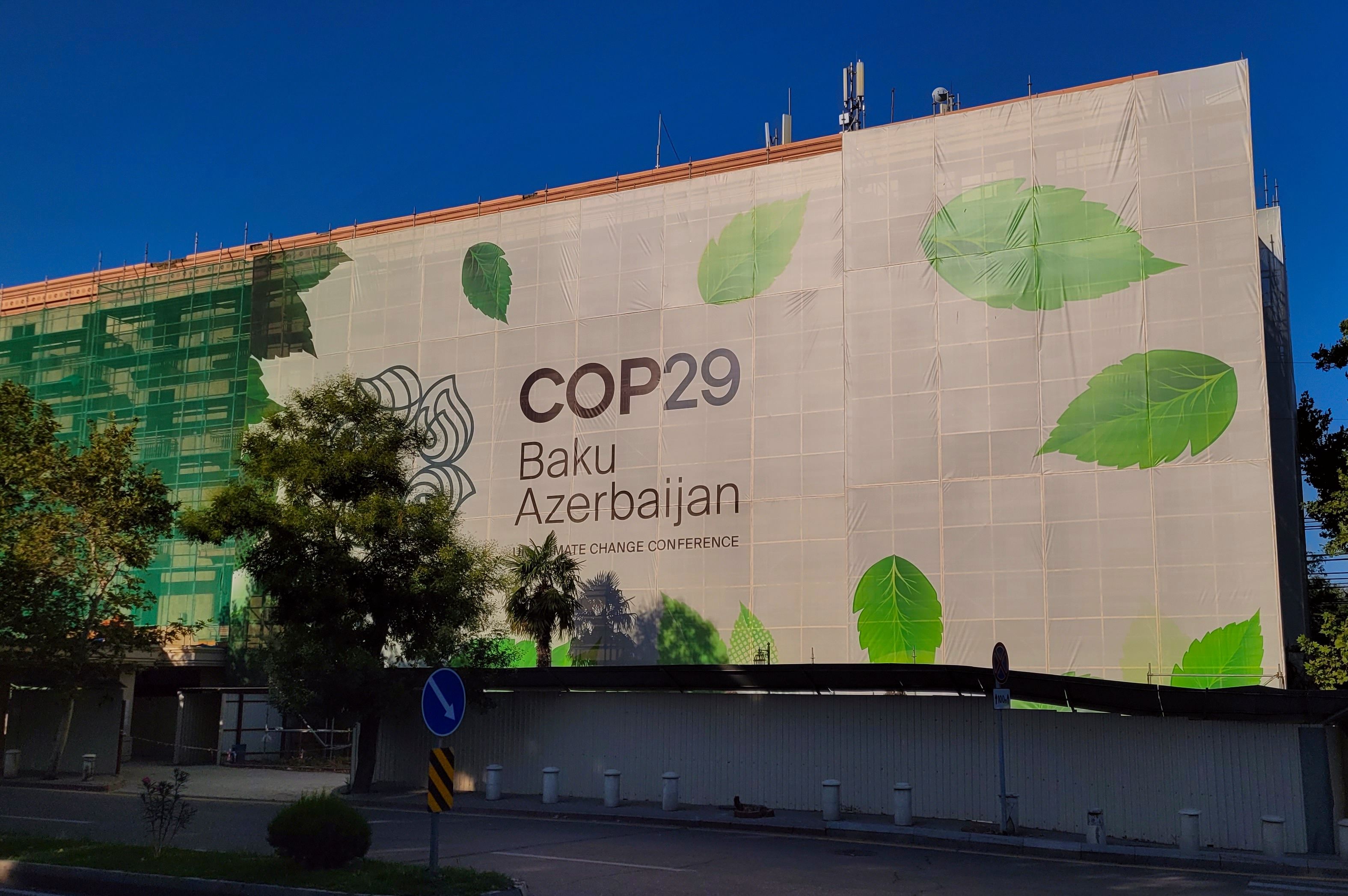COP29’s Challenge: Turning Climate Pledges into Global Impact

COP29, held in Baku, marked a significant milestone in global climate action. The event highlighted critical commitments, including the operationalisation of the Paris Agreement Crediting Mechanism (PACM) and a pledge to increase climate finance to $300 billion annually by 2035. However, these outcomes, while promising, underscore the need for clearer implementation strategies and actionable frameworks. For those working at the intersection of innovation and impact—businesses, innovators, and policymakers—these developments offer both opportunities and challenges.
One of the most anticipated outcomes of COP29 was the operationalisation of the Paris Agreement Crediting Mechanism (PACM), formerly known as Article 6.4. This global carbon market offers a framework for trading carbon credits to facilitate international collaboration in reducing greenhouse gas emissions. The PACM holds the potential to:
● Mobilise private sector capital by incentivising investments in low-carbon projects.
● Enable innovative financing instruments for climate solutions.
● Provide additional revenue streams for climate projects, reducing risks for investors.
● Accelerate adoption of high-impact technologies across regions.
If implemented effectively, PACM could generate hundreds of thousands of green jobs globally and contribute billions to the GDPs of developing economies by 2035, providing critical financing to support climate action initiatives, particularly in vulnerable regions. However, addressing critical challenges such as carbon leakage—where reductions in one region lead to increases elsewhere—and the potential for double counting emissions reductions is essential. To maximise its impact, PACM must prioritise projects that align with local development needs and deliver tangible benefits to vulnerable communities, supported by rigorous monitoring frameworks and enforceable standards.
Climate Finance: Progress and ChallengesThe agreement to triple climate finance to $300 billion annually by 2035 is a positive step forward. However, it still falls short of the $1.3 trillion that experts estimate is needed annually to avert catastrophic climate change. Beyond economic benefits, this funding has the potential to transform communities by creating jobs, improving access to clean energy, and addressing inequities in regions most vulnerable to climate impacts. Developing economies, often the most vulnerable to climate impacts, face significant barriers, including complex funding mechanisms and eligibility requirements.
Addressing these gaps requires streamlining funding mechanisms, building institutional capacity, and tailoring solutions to the unique challenges of developing regions. Special attention must be given to funding early-stage ventures and ensuring that pilot and demonstration projects are adequately supported, which are vital for testing and scaling transformative solutions. Equally critical is providing innovators from developing countries access to advanced R&D funding and state-of-the-art facilities in developed nations, to further bridge these gaps, fostering inclusivity and collaboration.
While the commitment to increase climate finance is a positive step, concerns about potential misuse of funds or inefficiencies in deployment must be addressed. Robust governance frameworks, transparency, and accountability mechanisms will be essential to maximise the impact of these resources and ensure they reach those who need them most.
COP29 highlighted the need for fairer distribution of climate finance to the MENA region and the broader Global South. However, geopolitical instability and regional conflicts pose risks to effective implementation. Unlocking the region’s renewable energy potential requires investments in capacity building, technology transfer, and cross-border collaboration, supported by proactive diplomacy. Without targeted reforms and international cooperation, climate finance risks being inequitably distributed, leaving vulnerable communities further behind.

Decarbonising Heavy Industries: The Missed Opportunity
Heavy industries, which account for nearly 30% of global CO2 emissions, received limited focus at COP29. Discussions around green procurement strategies and innovative financing tools were promising but lacked enforceable commitments or timelines. For developing nations, the absence of support for adopting cleaner technologies risks widening the gap in industrial decarbonisation efforts.
Yet, the potential for impact is immense. Decarbonising sectors like steel, cement, and chemicals could reduce global CO2 emissions by up to 10 gigatons annually by 2050 while creating industries around green steel and low-carbon cement. Achieving this requires a concerted effort, including implementing green procurement mandates, offering tax incentives, and establishing international funds to support cleaner technologies in emerging markets.
KAP - Driving Change Through CollaborationAt KAP, we believe that connecting innovation with impactful projects, strategic partners, and investment is essential for building thriving ecosystems. By fostering partnerships and facilitating cross-regional collaboration, we empower startups, entrepreneurs, and investors across the UK, Middle East, and Africa. Our strategic initiatives ensure the seamless flow of funding, technology, and R&D across borders, creating opportunities and laying the foundation for transformative climate solutions.
Strategic partnerships unlock potential in emerging economies. At KAP, we support startups by enhancing investor readiness, facilitating pilot projects, and fostering targeted collaborations that bridge the gap between global ambitions and local action. For UK startups, we provide pathways to establish a robust domestic presence before exploring opportunities in the Middle East and Africa. Simultaneously, we connect startups from the Middle East and Africa with the UK market, offering access to R&D support, partnerships, and collaborative grants.
Our ultimate goal is to nurture a thriving ecosystem where innovative solutions are not only developed but also scaled and implemented to tackle pressing global sustainability challenges. This mission aligns closely with COP29’s vision, emphasising the importance of channelling resources toward high-impact projects and fostering global partnerships. At the same time, there is a great opportunity to showcase the UK’s leadership in innovation and global collaboration, reinforcing its role as a hub for transformative solutions and cross-regional partnerships.
A Call to ActionCOP29 underscores the urgency of turning pledges into action. While frameworks exist, their success depends on ensuring accessibility, integrity, and equitable outcomes. To truly empower innovators and communities in emerging economies, we must focus on bridging gaps between ambition and implementation. COP29’s commitments are not just milestones for near-term progress—they are stepping stones toward the ambitious goal of achieving net-zero emissions by 2050.
As part of this mission, KAP is proud to host a pavilion at Innovation Zero 2025 with the support of their partners Energy Innovation Agency. The pavilion will spotlight innovative solutions from UK startups, highlighting their potential for global scaling, fostering partnerships, and driving transformative collaborations.
We’ll further delve into these themes during our session, "Driving Climate Solutions: UK-Middle East Innovations and Partnerships," hosted in partnership with Innovation Zero, Energy Innovation Agency, UK-UAE Business Council, Oman British Society, SBKBC, and ABCC. Join us on 29th April, 11:30 am - 1:00 pm at the Working Group Theatre, where policymakers, investors, and innovators will share actionable solutions to address climate finance, decarbonisation, and sustainable innovation.
COP29 has set the stage for meaningful climate action. Now, we must turn vision into reality—empowering local communities, fostering cross-regional collaboration, and prioritising sustainable solutions that will shape a better, more resilient future for all.

Mohamad Kantar, Managing Director, Kantar Advisory Partners


